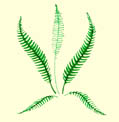The Fernhurst Society
Tales from the Archives - 18
What's in a place name?
…..a lot of local history! Some are obvious, such as Church Road, Haslemere Road, Midhurst Road, The Green, etc.
The name ‘Fernhurst’ was first recorded in the 12th century as ‘Ferneherst’, a wooded hill, although some maintain that it was ’Faranhurst’ a hill belonging to a local leader called Fara. The spelling changed over the years, often as ‘Farnhurst’, in which the local Sussex accent can be detected, and it was only in the 20th century that Fernhurst finally became definitive.
Geography plays a large part in place names, such as Van or Vann denoting the presence of water, Shulbrede – ‘a strip of land on a slope’ and Henley ‘a wood frequented by wild birds’. There is a distant echo of the medieval deer enclosure in our area in Park View, Park Lane and Park Barn. Old trades come to mind with Nappers Wood (flint workers), Tanyards and Sopers refers to the smelly leather trade and Cylinders and Furnace Pond to ironworking.
Owners from centuries ago are still remembered, as in Moses Hill, Chases Farm, the White House, and, more recently, West Close was named after the former owners of the land. Some are not so clear – was The Barracks referring to a Civil War encampment or home for the ironworkers? The Barracks, however, is near an area still known as Cavalry Quarters.
These are just a few examples. There are many more stories to be explored in our place names.
If you would like to know more about this story, or research other local topics, the Archive is open on Tuesdays, 2.30-5pm in the Village Hall. Other times by arrangement.
Christine Maynard
Fernhurst ArchiveOne of a series of short articles bringing you some of the incidents from our rich village history. Collated by Christine Maynard, based on documents preserved at the Fernhurst Archives, these originally were published in the monthly Fernhurst News.
The Fernhurst Archives
Fernhurst History

